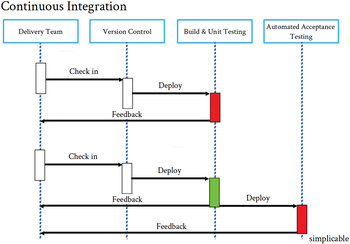Last Responsible Moment
Last responsible moment is the practice of delaying decisions and planning until they absolutely need to be done. This allows you to respond to change and reduce wasted planning effort.Integrated Product Team
Small multidisciplinary teams that are responsible for requirements, development and operations for a single product or process. This prevents the heavy politics of having departments dealing with departments. It also simulates the structure of small firms that tend to do things far more efficiently than larger firms.Ranking Priorities
A common way that projects get big is that stakeholders are asked to prioritize their requirements and they rate everything as "must have." This can be prevented with a mandate that they rank priorities from 1...n.Agile
Agile is the practice of implementing work in chunks no longer than a few weeks in duration. This typically restricts the planning phase for a release to a single day. Agile also allows for longer term planning to occur in the background away from the critical path of releasing work often.Time to Market
Prioritizing time to market as a business metric forces planning cycles to be short as changes need to be shipped quickly. In other words, executives that aggressively evaluate teams on time to market will force teams to minimize planning.Continuous Improvement
Continuous improvement is the process of measuring results, improving and measuring again. This works well with agile whereby you improve in quick releases that can be adapted quickly based on real world results.Process Streamlining
Minimizing bureaucratic processes that make planning bigger such as budget approvals or reviews by multiple departments. It is easier to justify minimal processes for small changes. This is yet another benefit of agile.Planning Culture
Implementing habits, routines and norms that shorten planning such as standing meetings where nobody gets to sit down.Structural Minimization
The less people that are involved in a change the less planning will be required. Likewise, changes that involve vendors or multiple departments may be orders of magnitude slower. As such, a basic principle of planning reduction is to put everyone with the authority to complete the change on the same small team. This can be described as designing your organizational structure to minimize the footprint of change.Notes
Overplanning is a dictionary word but many spell check programs correct it to over-planning such that this is the more common spelling.| Overview: Overplanning | ||
Type | ||
Definition | The practice of planning for months or years at a time without implementing anything. | |
Also Known As | Over-planning | |
Related Concepts | ||



























